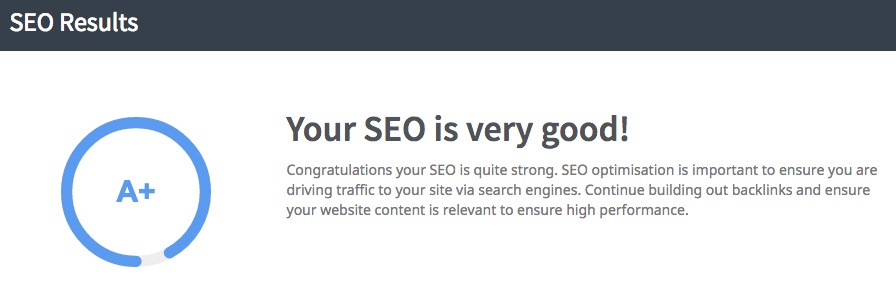
First, you might be asking, what’s SEO? If you own your own business or website, it’s a term you’ll want to become familiar with. Search engine optimization, or SEO for short, is the process of maximizing the number of visitors to your website by ensuring that the website ranks at the top of the list of results returned by a search engine. We call this “organic” results, meaning, you didn’t pay for them.
Good SEO equal more business. To put it simply, if people can’t find you, your website won’t be doing you much good. Over the years I’ve seen many businesses spend a nice budget on creating a great website, and then go by the old brick and mortar credo “If we build it, they will come”. Not sure if that was EVER the case for malls or websites, but it certainly isn’t the case now.
There are 3 major search engines you want to know about your site.
1. Google
2. Bing
3. Yahoo!
Yahoo! is powered by Bing for certain searches. There are several important steps in good SEO.
Keywords and Content
Gone are the days when you could easily just place “metatags” of “keywords” (words others may type into search engines to find your page) onto your page code and search engines would just crawl them up and you’d be golden. Due to mostly abuse, Google and other search engines now take page content much more importantly than keywords. In fact, most SEO experts agree that keyword tags are a thing of the past. You’ll definitely still want to identify your keywords for your website however.
Once you know your keywords, make sure they occur within your web pages. It matters where they occur (your main keyword should be in the first paragraph for sure), and it matters how often they occur. Even the “weight” of your keywords matters. For example, if you have “Website Design” in bigger, bold letters on your page (In web terms, an “H1” tag), that’s going to matter more than just regular text. But Google doesn’t just use your keywords to determine how to rank your page. They also use topic association and semantic analysis on your keywords. In other words, do words on your page relate to the topic keywords. A site about baseball should likely contain the word bat and maybe home run, too. All of this behind the scenes almost instantaneous work is done to help Google and other search engines suggest the best search results for you.

Local Listings
Another thing to consider is local listings. How are you listed locally? When you type in your company name do search engines bring up your company listing in a featured position on the right side of the screen? How about when you type only your most popular keywords?
All of these important things can be updated through Google, Yahoo and Bing local listings. In fact, you can upload your own photographs, company logo, confirm your address, set your business hours, and provide categories and descriptions of your business. And it’s all free, so you’ll want to do that right away.
Links and Popularity
Who likes your site enough to link to it? Search engines put a great deal of weight on your listing by how many people link to your site. The more popular the site that links to you, the more weight that link helps you. If you have fellow business owners that run their own websites, why not exchange links with them?
Other Factors to Consider
Good SEO requires many hours of work. Each of the major search engines have tools to help optimize your site for their directory. I’d encourage you to use these.
Here’s some other items to consider when evaluating and optimizing your website.
- Website Performance – How fast does the site load?
- Content Date – How much does your website change content and get updated?
- Mobile Friendly – Does your website look good on mobile? If the answer is no, you’re in trouble.
- What’s your presence on Social Networking – and how does it link to your site?
- How’s your site security? You’ll want to have an SSL certificate even if you’re not processing credit cards.
- Sitemaps are your friend – Submit them to each of the search engines.
Be careful when working on your SEO. “Black hat” or “Dirty Tricks” to get your site listed higher will surely get you banned from Google or other search engines. Review SEO rules so you know what not to do. This is something you’ll want to do right the first time.
We Can Help
If you’re not quite sure how you’re website is doing on your SEO strategy, we can help. We offer a free report to our clients that outlines where you’re at now, and recommendations to where you should be.
Skyhound Internet offers a basic SEO package for all of our clients that features many of the above items for a one time fee starting at $400. We have more extensive packages available for companies that demand top placement. These plans typically take a minimum of 3-6 months and run around $1,000 per month. If you’d rather do it yourself, just allow plenty of time to research what’s right for each search engine, and go for it! It’s a great learning experience for any serious business owner if you have the time to devote to it.
Lastly, don’t expect changes overnight. Most search engines now have actual human beings check submitted listings for accuracy. This keeps the search engines more accurate and weeds out those that are trying to “cheat the system”. So start early, it may take weeks or even months to achieve the placement you desire and deserve.
Want more info? Contact Us today.